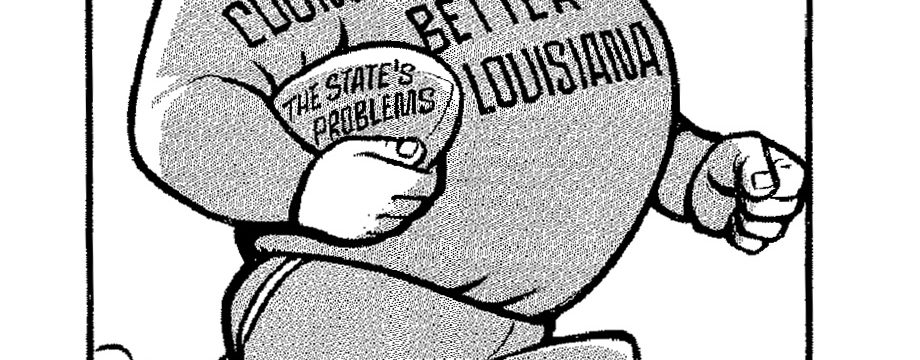
The general public might not pay a lot of attention to legislative sessions, but if you even make it sound like someone is going to mess with their TOPS scholarships or their football, that perks them up. Of course, despite the headlines about TOPS being cut or the football season somehow being threatened, those things were never really going to happen.
Some called them scare tactics. Maybe they were and maybe they weren’t, but they did get people’s attention, and that’s good. To some degree it’s important for everyone to understand the scope of what Louisiana is facing at this most critical time. One way you do that, unfortunately, is by talking about the worst-case scenario, because that’s the scenario that shows you how wide the chasm really is. It doesn’t mean that gap won’t be closed, but you do have to understand how wide that gap is.
It’s clear from a lot of the line of questioning coming from lawmakers that many of them do not and by extension neither does much of the public. But a few key points are worth making:
- The problem we are facing today has been seven years in the making. Declining oil prices have made the situation worse, but this day was always coming.
- We have been running a structural deficit since at least 2010. That means we have been spending more money than we have coming in and economists peg that at somewhere around $800-$900 million per year.
- There are a number of reasons for this, but one of the key ones is that when we repealed a portion of the “Stelly Plan” several years ago, we reduced taxes in our state by upwards of $800 million. From a revenue side we have never recovered from that.
- On the spending side we never really made much in the way of structural changes during any of that time. We kept finding one-time money to fill most of that $800 million gap, but it wasn’t money that was coming in every year. It was money that came from all kinds of temporary infusions of cash. Now it’s mostly gone.
- There is a lot of talk about making structural changes in the way we spend our money and what we pay for. That’s good. But most of them don’t yield immediate savings. We should have started on those things five or six years ago when the budget problems started.
All that said, lawmakers have to do something in this special session and the question is what’s most likely to happen? It’s hard to say. From the initial lines of questioning it seems clear that lawmakers are not going to let any worst-case scenarios happen, but they’re not in a rush to raise additional revenues, either.
But because they can only deal with new revenues in a special session this year it creates problems. The administration’s plan is something of a three-step process – dealing with the immediate cash crisis, putting together a plan for the next fiscal year and then proposing long-term solutions that would include more real and structural reform.
Thinking they can do all of that in three weeks, given the current level of discussion going on, seems difficult at best. And imagining that they would raise a significant level of taxes for next year in the special session, when they can’t work on structural budget issues and cuts until the regular session is looking like a clear disconnect, too.
Be that as it may, it seems fairly likely that they will indeed find some solution to the state’s most immediate needs. They have little choice. But the critical question is what will they do about the long-term crisis? Will they have the opportunity to begin looking at structural changes in the budget and somehow be able to align that with additional revenues? And if they do that will they also make some of the much-needed changes in Louisiana’s overall tax structure that will make it stronger and more competitive?
These are all important issues and right now time, the constitution and public opinion aren’t working in lawmaker’s favor. At some point, though, we as citizens and they as legislators need to come to three conclusions: 1) this budget crisis is real and it threatens some of the very foundations of our state, 2) we need to make permanent structural changes on the spending side and the revenue side that help ensure we won’t get into this situation again anytime soon, and 3) we need to do all of this while thinking what it is we really want our state to be.
Unfortunately, in the rhetoric one hears from some at the Capitol these days there seems to be a sense of tolerance for not just mediocrity, but outright inferiority.
You would think we could do better than that, but we’ll find out.
